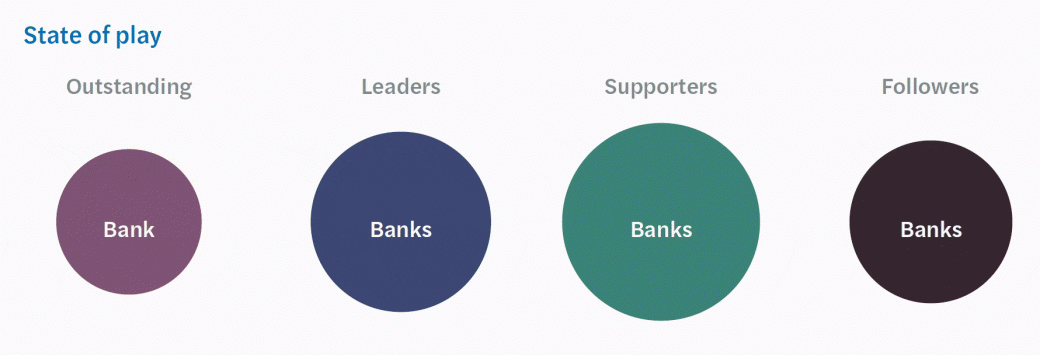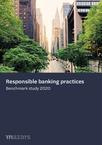Download the report
The financial world can no longer see its future as separate from the environment and climate change developments. In 2020 alone, natural hazards resulted in $210bn of damages and the Bank of England estimates as much as $20trn of assets could be at risk from climate change.
To help banks and their stakeholders with this transition, this year’s study builds on previous Mazars reports published in 2020: “Responsible banking practices, benchmark study” and “How banks are responding to the financial risks of climate change”. This year, following stakeholder feedback and interest, it examines a wider sample of 37 banks based in Africa, the Americas, Asia-Pacific, and Europe. Using these banks’ 2019/20 publicly available reporting, we identify evolving best practices and developing trends in their management of climate change risk and broader social and governance issues.
Download the report
State of play
Ranking the 37 banks into four categories – outstanding, leaders, supporters, and followers – it is encouraging to see that one bank is ranked as outstanding, achieving a positive score in more than 95% of the criteria set in our assessment. It is also remarkable to see more banks rank as leaders and supporters compared to last year’s findings, and fewer (just seven) rank as followers.
However, challenges remain, and our benchmark study reaffirms that strong sustainability practices often come hand-in-hand with consistent industry guidelines and requirements provided by local regulators and governments.
For the second year running, Mazars publishes its responsible banking practices report to assess how banks embed sustainability into their commercial practices. The Benchmark provides welcome evidence that banks are taking steps to set and achieve internal sustainability targets and to address the market need for responsible products. The finding that 78% have launched Green Bond programmes is very encouraging, but the lower number of customer facing products (32%) suggests that there is an opportunity for Irish and European banks to differentiate in this space and meet a market need.
Mark Kennedy
Partner - Mazars in ireland















